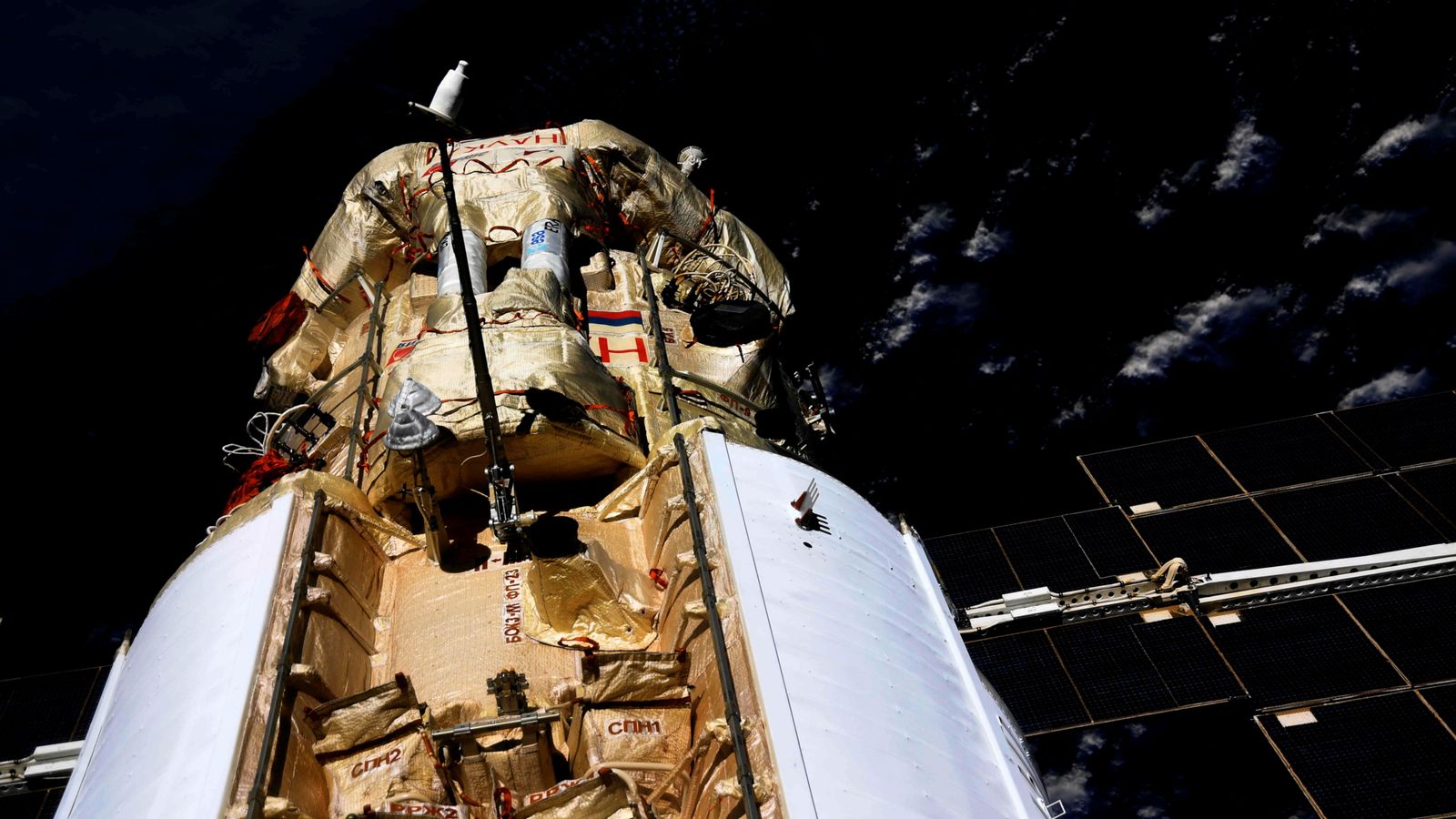The International Space Station has been knocked out of position after a Russian science lab malfunctioned.
The newly arrived lab accidentally fired its thrusters, resulting in the ISS losing control of its orientation for 47 minutes, NASA said.
Russian cosmonauts had been checking for leaks between the 22-tonne lab – named Nauka – and the service module, when automatic sensors on the ground detected the problem.
Communication between the station and ground controllers was also cut twice for a few minutes.
NASA said that the crew was “never and is not in any danger”, adding that ground teams had regained control and the “motion of the space station is stable”.
Joel Montalbano, manager of NASA’s space station programme, said that, at the height of the incident, the ISS was pitching out of alignment at the rate of about half a degree per second.
The crew “really didn’t feel any movement”, he added.
Russian space officials were also unfazed, with Dmitry Rogozin, head of Roscosmos, tweeting: “All in order at the ISS. The crew is resting, which is what I advise you to do as well.”
It is not yet clear why Nauka’s thrusters malfunctioned.
Follow the Daily podcast on Apple Podcasts, Google Podcasts, Spotify, Spreaker
The 13m-long lab launched from Kazakhstan last week, taking eight days to reach the ISS, where it will provide more space for scientific experiments.
It had been due for launch in 2007 but was delayed due to numerous technical problems, including contamination in its fuel system in 2013.
It will now need various manoeuvres, including up to 11 spacewalks, before it is ready to be used.
The incident prompted NASA to postpone the 3 August test flight for a Boeing capsule from Florida.
Boeing was set to make its second attempt to reach the 250-mile-high ISS after software problems ruined the first test.
The ISS is currently being operated by NASA astronauts Mark Vande Hei, Shane Kimbrough and Megan McArthur; Oleg Novitsky and Pyotr Dubrov of Russia’s Roscosmos; Japan Aerospace Exploration Agency astronaut Akihiko Hoshide and European Space Agency astronaut Thomas Pesquet.
